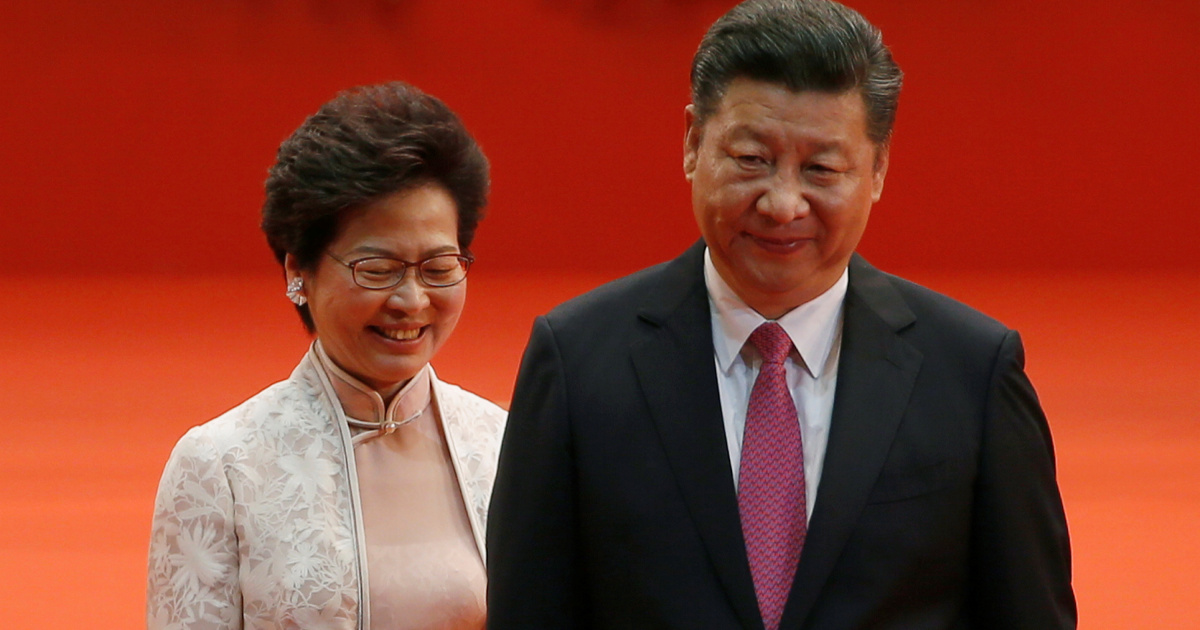Webinar on Lithuania-China ties
New Delhi, India: A New Delhi based Red Lantern Analytica international group invited Dovile Sakaliene, a member of the Lithuanian Parliament, as well as a member of the National Security and Defence Committee to speak about the Lithuania and China relation.
Dovile has also worked as a journalist and is also a Human Rights defender. The Interviewer for the webinar was Sriparna Pathak, an Associate Professor at OP Jindal Global University as well as the Director at the centre for North-East Asian studies.
Recently Lithuania has allowed Taiwan to open a trade representative’s office in its capital and is allowing it to use the name ‘Taiwan’ instead of Taipei which other countries usually do. This decision has greatly irked the People’s Republic of China as it claims Taiwan to be a part of it and considers this move to be a threat to the one-China policy.
Dovile has been very vocal about calling out China’s treatment of Uyghurs and as a result, has even been blacklisted and sanctioned by China.
The first question of the webinar was that in 2021 Chinese imports into the European Union have actually gone up despite the numerous allegations of human rights abuses and claims of forced labour. Where does Lithuania stand in regards to this, and does it agree to trade with China in goods that come from Xinjiang using slave Uyghur labour?
In answer to this question, Dovile stated that anyone who cares about human dignity and morality would reject items and products coming out of Xinjiang. From an economic perspective, the main export from Xinjiang is cotton and this sector comprises a very little percentage of Lithuania’s GDP. While it is true that trade between the European Union (EU) and China remains high.
EU leaders and their policies are slowly changing and Inter-Parliamentary Alliance on China (IPAC) has been doing a good job in calling out China for its abusive behaviour and trying to change the EU’s stance.
Lithuania has a very low economic dependence on China and that is one of the main reasons it has been able to stand up to China’s bullying tactics. While Lithuania is a small country, they are still a member of the democratic club and wish to remain true to their ideals, values, and principles.
The next question that was asked in the webinar was how Lithuania came to the decision of opening up a Taiwan representative office, and what were the deciding factors?
In a response to this question, Dovile stated that Lithuania took a systematic approach, and it is not an embassy, as claimed by some newspapers, but a trade representative office.
Moreover, she said that Lithuania was allowing Taiwan to build a trade representative office and not an embassy and thereby maintaining the one-China policy somewhat; she confirmed that Lithuania did not violate the One China Policy. But the most important factor is that the office will be under the name of Taiwan and not Taipei. Lithuania is an independent country and therefore it reserves the right to establish trade and cultural relations with any country it chooses.
The next question was whether Lithuania expected retaliation from China in the forms of weaponising trade as it did with Australia when Aussies asked for an independent investigation into the origins of COVID-19.
Dovile answered the question by stating that China had already taken some hostile steps against Lithuania. China had put train connections of hold with Lithuania, as well as create several obstacles for Lithuanian companies operating in China. Past trade deals between China and Lithuania were also suddenly annulled. While Lithuania does not wish for a trade war with China, Beijing’s actions show clear hostility.
Dovile also added that these measures taken by China do not come as a surprise. Under the recently amended National Security Law, private Chinese companies are required to provide data regarding all economic activity to the party. This ensures that private companies in China, as well as foreign companies operating in China, have no privacy.
In addition, China has recently also enacted the anti-sanctions law which allows Beijing to freeze the assets of western companies and arbitrarily deport employees. These factors make China’s economic environment extremely unpredictable. Lithuania is just trying to defend its values and principles while wishing for its trade partners to be predictable.
Lithuania has already started taking steps in order to ensure that China’s actions do not negatively impact it. Lithuania is reaching out to its allies like the US and Taiwan so as to alleviate the pressure from its companies.
The next question was regarding a report in Global Times on how China and Russia could ally together to punish Lithuania. Therefore, Dovile was asked whether Lithuania’s relation with Russia was impacted at all due to China’s influence.
In response, Dovile stated that the Global Times is a mouthpiece of the Chinese Communist Party therefore its threats do carry some weight. In addition, Lithuania’s relations with Russia have been strained since ‘occupation times’ and especially recently since Russia is performing military drills close to the Lithuanian border. But officially Russia has not responded to the report by Global Times or taken steps against Lithuania.
The next question pertained to how China is attempting to change the world order and how can the international community tackle China’s aggressive actions?
Dovile stated that the current world order was built on rule of law and mutual respect for other nations and their borders. In order to maintain peace and stability, nations must stick to it. But unfortunately, some nations have recently tried to challenge these rules and China is among these nations.
China has made wild territorial claims in its neighbourhood that has brought it into conflict with almost all its neighbours. The only way to combat China is for the international community to stick together and stand up to every attempt by China to violate our borders, our rules and the rule of law.
The last question in the webinar was how Lithuania and India have in a sense faced the same backlash from China and thus does the shared experience open up the possibility of future cooperation between India and Lithuania.
Dovile was very optimistic about future cooperation between Lithuania and India and have more in common with each other than just China. The Communist Chinese Regime is very similar to the Communist Soviet Regime of the past in terms of double standards, repression, and prison camps.
Therefore, Lithuania like India knows what it means to live next to an authoritative state that does not know what democracy looks like. She added that Lithuania and India are connected by history, culture and language and thus have a lot in common. In the future, Lithuania and India could be good friends.
Following the last question from interviewer Sriparna Pathak, the floor was opened for a brief Q/A session with the audience after which the webinar was brought to a close.












